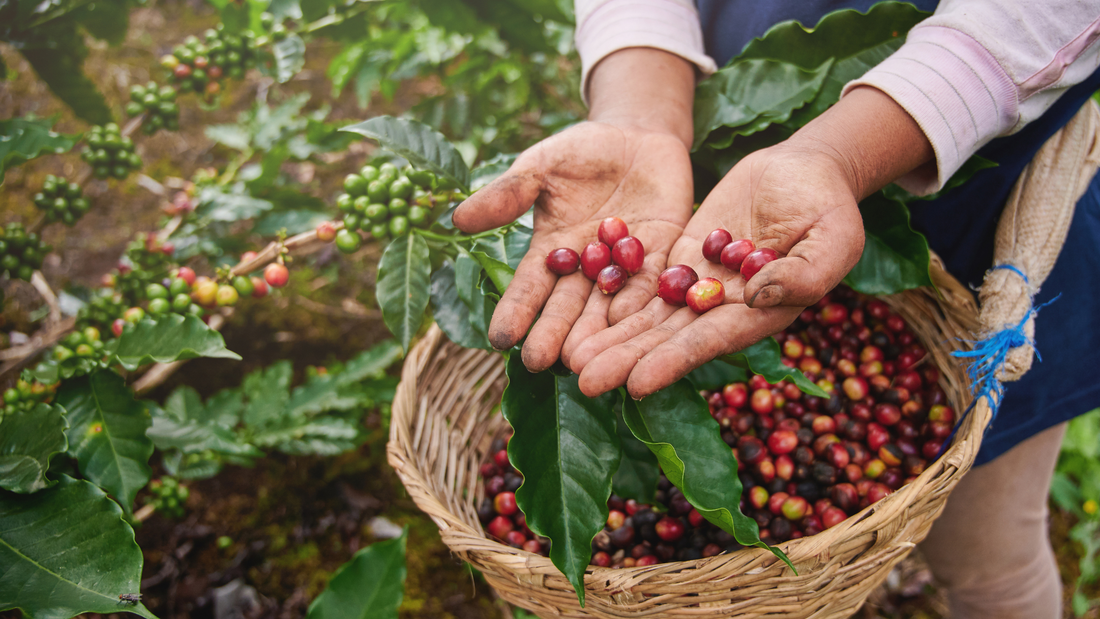
Why Specialty Coffee Matters: From Farm to Cup
Share
Why Buy Specialty Coffee? A Revolution in Your Cup
At Feral Coffee Roasters, we believe coffee should be more than a caffeine delivery system. It should be a connection—to the land, to the people who grow it, and to the hands that roast it with care. Every bag of specialty coffee tells a story: of farmers who treat their crops like craft, of roasters who obsess over each batch, and of drinkers like you who know that quality matters.
So, why buy specialty coffee? Let’s break it down.
1. The Craft of the Small Farmer vs. The Corporate Stranglehold
Behind every cup of specialty coffee is a smallholder farmer who sees their crop not as a commodity, but as a livelihood—and an art. These are not the industrial fields of corporate coffee giants, where yield is everything and quality takes a back seat. Instead, specialty coffee comes from farmers who hand-pick ripe cherries, use sustainable practices, and often work in family-run operations passed down through generations.
By choosing specialty, you’re directly supporting those growers—people who have been pushed to the margins by an industry dominated by a few mega-corporations. These conglomerates prioritize scale and uniformity, not sustainability or flavor. Specialty coffee is a way to opt out of that system and vote with your dollars for fairness, quality, and transparency.
2. Rich Growing Regions vs. Mass-Produced Beans
Specialty coffee thrives in diverse ecosystems—high-altitude farms, nutrient-rich volcanic soil, and climates with distinct wet and dry seasons. These conditions aren’t just beautiful—they’re essential for growing beans with complex flavor profiles.
Mass-produced beans, on the other hand, are often grown at low altitudes in monocultures with heavy pesticide use. They’re harvested indiscriminately, often before they’re ripe, leading to flat, bitter brews. Specialty coffee, by contrast, is all about precision: ideal altitude, optimal ripeness, and careful post-harvest processing. That’s why you’ll taste floral notes in an Ethiopian Yirgacheffe or chocolate and plum in a Guatemalan Huehuetenango—not because of flavoring, but because of terroir and care. Don't even get us started on "flavored coffees."
3. The Diligence of the Local Roaster
At Feral Coffee Roasters, we don’t take shortcuts. We roast in small batches, fine-tune every profile, and cup each roast to ensure quality before it ever reaches your cup. We’re not following an algorithm—we’re using our senses and our experience.
Local roasters like us have the advantage of agility. We can source unique micro-lots, build relationships with importers who care about ethics and freshness, and make real-time adjustments based on feedback from our community. We’re not beholden to shareholders or spreadsheets—we’re beholden to the bean, and to you.
4. The Culmination: A Cup Worth Savoring
When you brew a cup of Feral Coffee, you’re tasting the culmination of an intentional process: the farmer’s labor, the land’s gifts, the roaster’s precision, and your own brewing ritual. Every step along the way was done with care, and the result is something worth slowing down for.
This is coffee that’s alive with flavor—vibrant acidity, balanced sweetness, nuanced body. It’s coffee that changes your perception of what coffee can be. And it’s coffee that supports a more just, transparent, and sustainable global (and local) economy.
The Bottom Line
Buying specialty coffee isn’t just about flavor (though that’s a big part of it)—it’s about values. It’s about choosing quality over convenience, craft over corporations, and sustainability over exploitation.
So next time you reach for a bag of beans, ask yourself: Who grew this? Who roasted it? What do I want to support with my morning ritual?
If the answer is craft, care, and community—you know where to find us.
Stay wild,
Feral Coffee Roasters